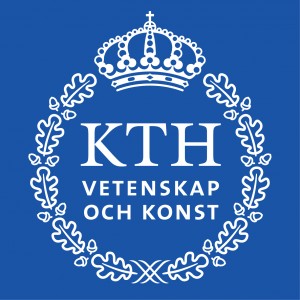1st JOINT VIENNA - STOCKHOLM WORKSHOP
Modeling the Possible
Vienna, 30 September 2020, 16:00 – 25 June 2021, 16:00 (via Zoom)
This workshop will consist of a set of twelve virtual meetings which occured between 30.09.2020 and 24.06.2021.
Organizing Comittee: Tarja Knuuttila (University of Vienna) Natalia Carrillo (University of Vienna) Till Grüne-Yanoff (KTH Stockholm) Ylwa Sjöling (KTH Stockholm)
The event is a co-organized effort between the Towards a Methodology of Modal Modeling project, funded by the Swedish Research Council (grant number 2018-01353) and the Possible Life: The philosophical significance of extending biology project, funded by the ERC (grant number 818772).
2nd JOINT STOCKHOLM - VIENNA WORKSHOP
Modal Modelling in Science: Modal Epistemology Meets Philosophy of Science
Stockholm, 27-28 May, 3-4 June, 2021 (via Zoom)
Scientists make modal claims, including claims of objective possibility. These possibility claims are often based on, or justified with reference to, the use of scientific models. But it is far from obvious that any scenario or system that can be modelled is objectively possible. Plausibly some constraints must be in place. But what are these, how are they justified, are they reliable trackers of modal truth? This raises questions of the kind treated by epistemologists of modality. Meanwhile, many contemporary epistemologists of modality are eager to stress that the basis for much of our modal knowledge is to be provided by science, and they strive to provide theories of modal justification that respect this fact. Yet, there has so far been very little interaction between philosophers of science who study modelling, and epistemologists of modality. This workshop aims to take a step towards remedying this by bringing together researchers from both fields.
Speakers
- Ottavio Bueno (Miami)
- Daniel Dohrn (Milan)
- Axel Gelfert (TU Berlin)
- Boris Kment (Princeton)
- Tarja Knuuttila & Andrea Loettgers (Vienna)
- Rami Koskinen (Vienna)
- Sonìa Roca-Royes (Stirling)
- Ylwa Sjölin Wirling (Gothenburg) T. Grüne-Yanoff (KTH)
- Peter Tan (Fordham)
- Michael T Stuart (Geneva)
- Tuomas Tahko (Bristol)
- Philippe Verrault-Julien (LSE)
The event is a co-organized effort between the Towards a Methodology of Modal Modeling project, funded by the Swedish Research Council (grant number 2018-01353) and the Possible Life: The philosophical significance of extending biology project, funded by the ERC (grant number 818772).
PSA-INEM Symposium
Modality and How-Possibly Explanations in Economics
Baltimore, 11 November 2021
There is a growing interest concerning the modal features of modelling across the sciences, with economics being no exception. Economic modelling practices do not fit the procrustean bed of full how-actually explanations and the demanding criteria on models that come with it. Instead of dismissing these practices as epistemically inert, more effort must be invested in investigating the role they play in establishing modal claims and providing how-possibly explanations. However, we still have a limited understanding of how how-possibly explanations are formed and used in practice and of their relationship with how-actually explanations. We also lack methodological criteria that would help us to assess the epistemic and heuristic value of how-possibly explanations. This session aims to make three chief contributions. First, we show that the practice of establishing modal claims is well entrenched in the practice of economists, even those with an eye on policy. Second, we illuminate how how-possibly explanations relate to economic modelling practices and how they are used to acquire how-actually explanations of phenomena of interest. Third, we provide methodological resources to appraise how-possibly explanations in economics.
Speakers
- Jennifer Jhun Duke University
- Emrah Aydinonat University of Helsinki
- Till Grüne-Yanoff KTH Royal Institute of Technology, Stockholm & Philippe Verrault-Julien, TU Eindhoven
PSA Symposium
Possibility Claims in Science: Modal Epistemology Meets Philosophy of Science
Baltimore, 11 November 2021
In this symposium, we describe and analyze scientific practices involving possibility claims, from synthetic and evolutionary biology, climate science, and economics. These practices pose challenges to philosophy of science, including questions about the justification of possibility claims, the representation of possibilities through models, the distinction of genuine from non-genuine possibilities, and what the relevant concept(s) of 'possibility' is in a given field. We advance understanding of these problems by analyzing the possibility claims and the associated practices with tools and arguments from modal epistemology. Although modal epistemology has only addressed scientific possibility claims to a rather limited extent, it has recently undergone an "empirical turn", investigating justification strategies for modal claims based on empirical evidence – thus making it amenable to issues in the philosophy of science. The resources from modal epistemology that we are employing include conceptual distinctions, new perspectives, and novel justificatory strategies. With this approach, the symposium aims to achieve three goals. First, it aims to raise awareness of interesting philosophical issues relating to scientific practices involving possibility claims. Second, it advances the philosophical analysis of these issues. Finally, it showcases how drawing on modal epistemology can help philosophy of science in this matter.
Speakers
- Philippe Verreault-Julien, Eindhoven University of Technology
- Ylwa Sjölin Wirling, University of Gothenburg & Till Grüne-Yanoff KTH Royal Institute of Technology, Stockholm
- Rami Koskinen University of Vienna
- Tarja Knuuttila University of Vienna


